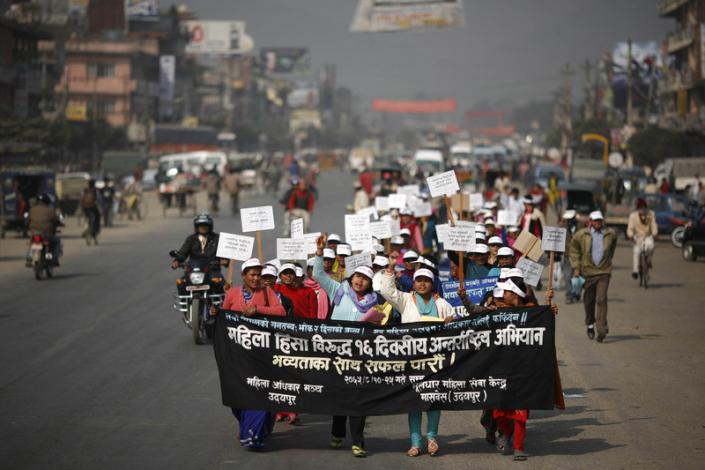
Nepal has been occupying the news headlines for the last few months, either due to the devastating earthquake that killed more than 8000 people, or the draft constitution that has recently been made public. After seven years of intense debate, the representatives from major (I would prefer to use the word ‘selected’) political parties sat down and ‘fast tracked’ the process of writing the new constitution. The draft, soon after it was made public on July 7, has faced a lot of criticism for being sexist, exclusive, and a mockery of what the Nepali people were promised after the political revolution in 2006.
Here is an example. According to the draft, even as a Nepali woman, I do not have the right to pass on citizenship to my child(ren), unless I can prove that the father is Nepali too. Similarly, if I marry a foreigner, it becomes almost impossible to provide naturalized citizenship to my husband, because of course once married, a daughter becomes an outsider, and Nepal automatically becomes her ‘maternal home’. This isn’t the case for a Nepali man marrying a woman from a foreign land. He need not be ‘given away’ in marriage and so he can still claim Nepal as his native country without prejudice.
The new draft is regressive even compared to the interim constitution Nepal currently has. Article 43 of the draft, ‘Rights of Women’ was strong in the Interim Constitution, but now remains in the new draft only as a token. The constitutional assembly had previously agreed (unanimously) to mention ‘patriarchy’ as one of the reason for injustice and inequality women have to face in the preamble. However, it is nowhere to be seen in the draft now. Probably the ones who were drafting the new constitution were ruffled by the idea of underlining the problems caused by patriarchy. Similarly, the right to reproductive health and reproduction has been removed, instead, right to safe motherhood and reproduction has been added. It seems that the law makers see Nepali women as ‘complete’ women only once they are mothers, directly promoting a hetero-normative culture, in which women must engage in reproductive roles and in sexual roles that lead to reproduction. The draft has not only completely ignored the inclusion of reproductive rights of women but it has also specifically mentioned sex-selective abortion as a punishable crime. This will allow the State to monitor women’s reasons for seeking abortion, and therefore threaten access to safe abortion as a whole.
Women rights activists are obviously aggravated to see that several achievements of the last few decades have been glossed over in this new draft. Some of the women politicians have joined them to make necessary amendments in the ‘patriarchal’ constitution, in their own language. Not just gender blind, the draft constitution is being criticised for not being disabled-friendly and not addressing rights of indigenous communities. So if you are both a woman with a disability and from an indigenous community, you face multiple layers discrimination and multiple degrees of marginalisation under this constitution.
And this is also important where intergovernmental negotiations are concerned. In most of these international, intergovernmental talks, Nepal has proven to be an ally when it comes to women’s rights and abortion rights. So it is worth wondering why that has not translated into national policy. Why has the country gone backwards when it comes to real action and change? It is particularly saddening to see Nepal go in this direction and frame women as ‘second-class citizens’, when women’s rights movements around the world have been demanding that the Post-2015 Development Agenda address structural causes of gender inequality. It might happen that the new constitution, which was expected to be finalised in August, will shape the future of the entire women’s movement in the country. [inlinetweet prefix=”” tweeter=”” suffix=””]Will Nepal really want to be one step behind our demand for sustainable development and equality for all?[/inlinetweet]
Pic Source: Action Aid